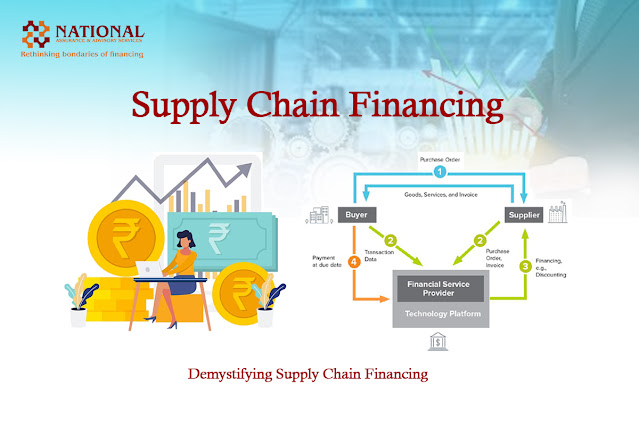In today's global economy, supply chains are the backbone of many businesses. From sourcing raw materials to delivering finished products, the intricate web of suppliers, manufacturers, and distributors plays a critical role in a company's success. However, managing the financial aspects of a supply chain can be complex and challenging. That's where supply chain financing comes into play. In this blog, we'll dive into the world of supply chain financing and explore how it works.
What is Supply Chain Financing?
Supply chain financing, also known as supplier
finance or reverse factoring, is a financial strategy that facilitates the
smooth operation of supply chains by optimizing the flow of funds among
suppliers, buyers, and financial institutions. It is a mutually beneficial
arrangement that enables suppliers to access early payment for their invoices
and buyers to extend their payment terms.
How Does Supply Chain Financing Work?
A buyer and a supplier must first agree to take
part in a supply chain financing programmed for the process to start. In this
process, financial institutions, frequently banks or specialized supply chain
finance providers, are essential.
As normal, the supplier provides the customer
with the requested goods or services and creates an invoice for the
transaction. The buyer signs the invoice, attesting to the accuracy of the
supplies or services acquired.
The supply chain finance programmed gives the
supplier the ability to ask for early payment for the authorized invoice. The
financial institution running the programmed receives this request.
Benefits of Supply Chain Financing:
- Supply chain financing allows suppliers to receive early payments, helping
them manage their cash flow more effectively.
- Buyers can negotiate better
terms with suppliers and build stronger, more collaborative relationships.
- By ensuring suppliers are paid
promptly, supply chain disruptions due to financial instability are
minimized.
- Buyers can optimize their
working capital by extending payment terms without adversely affecting
suppliers.
- Suppliers can often secure
financing at better rates through supply chain financing programs compared
to traditional loans.
Supply chain financing is a win-win solution for both buyers and
suppliers. It streamlines the financial aspects of supply chain management,
ensuring that the flow of goods and money remains uninterrupted. As businesses
continue to expand globally and face increasing competition, understanding and
implementing supply chain financing can provide a significant competitive
advantage. By creating more stable and efficient supply chains, companies can
focus on what they do best: delivering quality products and services to their
customers.





No comments:
Post a Comment